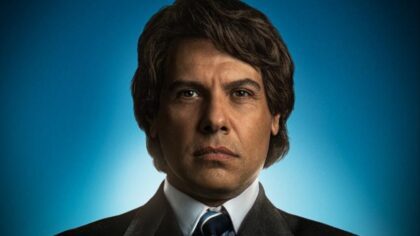Class Act Ending Explained: Netflix lately released its rearmost limited series centred around the life of one of the most controversial French public numbers, Bernard Tapie, the late businessman, songster, actor and television host. His part is played by Laurent Lafitte in the 7- part series created by Tristan Seguela and Olivier Demangel, and it also stars Josephine Japy, Patrick d’Assumcao, Camille Chamoux, Antoine Reinartz, Hakim Jemili and others star in important places.
The last occasion depicts his verbal argument with the prosecutor in charge of the disquisition following the concession of Valenciennes player Jacques Glassman, one of three players communicated by Marseille player Jean- Jacques Eydelie. Then’s how the last occasion addressed the problem and depicted Tapie’s eventual demise.
Plot summary
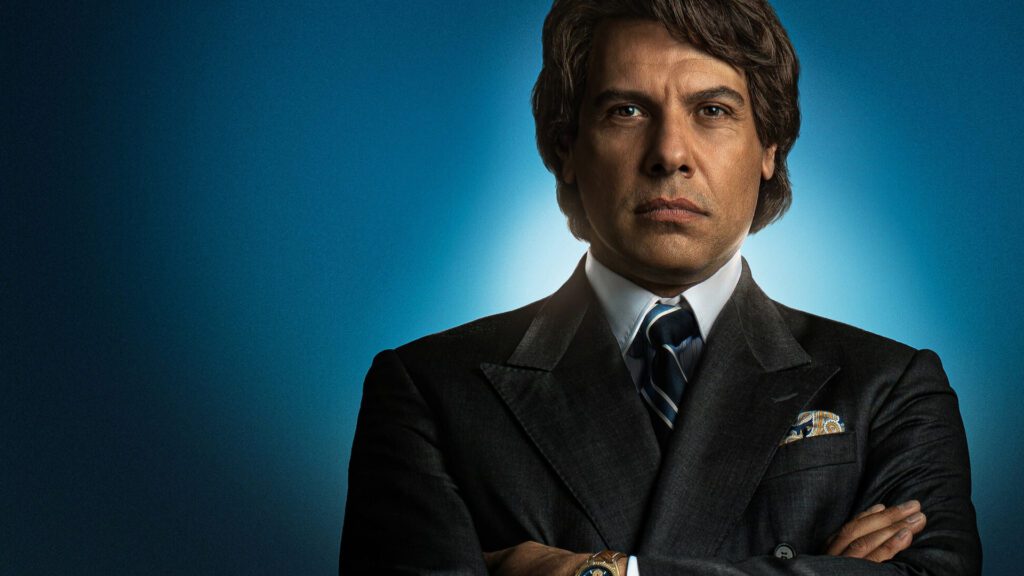
Bernard Tapie is a man whose father sets up hotting systems in people’s houses, but Bernard refuses to follow in his steps. Bernard dreams big, and he wishes to be known each over France one day.
He takes a loan and records an reader, but it doesn’t give him the recognition he wants. In 1970, his failed music career and debt don’t discourage him. Bernard has a woman, Michelle, and a son, Stéphanie, but no plutocrat. Indeed when others around him don’t believe in his vision, he doesn’t give up on being successful.
Bernard meets a rich man namedMr. Loiseau and convinces him to invest in his business. With his help, Bernard opens a subscription- grounded electronics store where people get to buy ménage appliances at a important cheaper rate.

Bernard’s store is a success, and it makes him a lot of plutocrat. still, Bernard falls in love with Dominique,Mr. Loiseau’s clerk, despiteMr. Loiseau’s warnings. This leads toMr. Loiseau taking Bernard to court and criminating him of mismanagement.
Loiseau gets to keep the business, while Bernard is paid a small sum and is forced to leave the store that was his concoction. The court also prohibits him from retaining a business. On top of that,Mr. Loiseau tells Bernard’s family about his affair, and Michelle leaves Bernard.
Bernard can no longer see his son without either Michelle or his own parents being present. He moves in with Dominique and plans to start a new business, Heart backing, with her and a croaker
named Serge.

Bernard’s new business aims to respond to and give timely backing to people having a heart attack, as utmost people who die of a heart attack in Paris die because they fail to get help in time. still, Bernard’s recklessness and his drive to come successful at any cost nearly lead to a man’s death, performing in Serge leaving Heart backing.
Heart backing becomes yet another failure in Bernard’s life. Bernard also starts working with his father and mends his relationship with Michelle, who’s no longer angry with him and allows him to see his son more constantly.
When Dominique tries to end her relationship with Bernard, he realizes that he has given up on his dreams. He consultsMr. Loiseau’s counsel, and after some further exploration, he decides to buy Diguet- Deny, a paper company that Bernard buys with one franc.
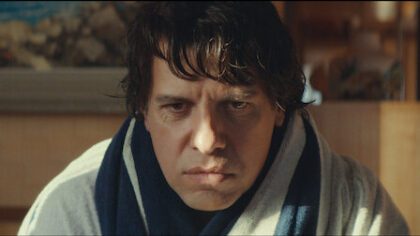
By 1976, Bernard and Dominique turn Diguet- Deny into a profitable company. piecemeal from being rich, Dominique and Bernard are also pregnant. They also wish to buy Wonder, a big company that Dominique’s friend’s swain, Alexis, has his eyes on.
Although Alexis is offering a huge sum of plutocrat to buy Wonder, Bernard and Dominique manage to get the deal by promising to not fire any hand, which would have happed if Alexis had bought the company.
still, they soon find out that they’re in debt. They’re also forced to vend Diguet- Deny, and all the workers at Diguet- Deny lose their jobs. In 1986, Bernard is a rich man and starts his own live television show.
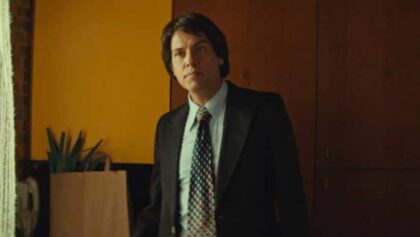
This is also the time when Wonder workers are protesting against Bernard’s redundancy plan, which has put their jobs at stake. On the day of the show’s first occasion, the workers take Bernard’s father hostage to get Bernard to talk to them.
Bernard comes to an agreement with the workers, and they let his father go, allowing Bernard to successfully launch his show. Bernard’s television show gets the attention of the President of France, who asks Bernard to join politics.
Bernard, who now owns Adidas and has come a symbol of success, goes on to come the Minister of Urban Affairs. Bernard doesn’t pay heed to Dominique’s warnings about the losses they’re facing and refuses to vend Adidas.

At the same time, an old associate of Bernard, Charles Coupant, sues Bernard, performing in a reproach. The chairman calls Bernard to bandy a defense strategy against Coupant, and as Bernard lets the journalists present there hear the discussion, the news breaks that the chairman asked Bernard to put pressure on the bar.
Bernard is also asked to abdicate after being the Minister of Urban Affairs for lower than two months. At a time like this, Bernard chooses to trust Dominique, who sells Adidas and settles the case without taking it to court.
Bernard also turns his attention to Olympique de Marseille, the football platoon that he owns, leaving Dominique to take care of their business. When Bernard comes to know that he can be the mayor of Marseille if his platoon wins the titleholders League, he decides to make it be in any way possible.
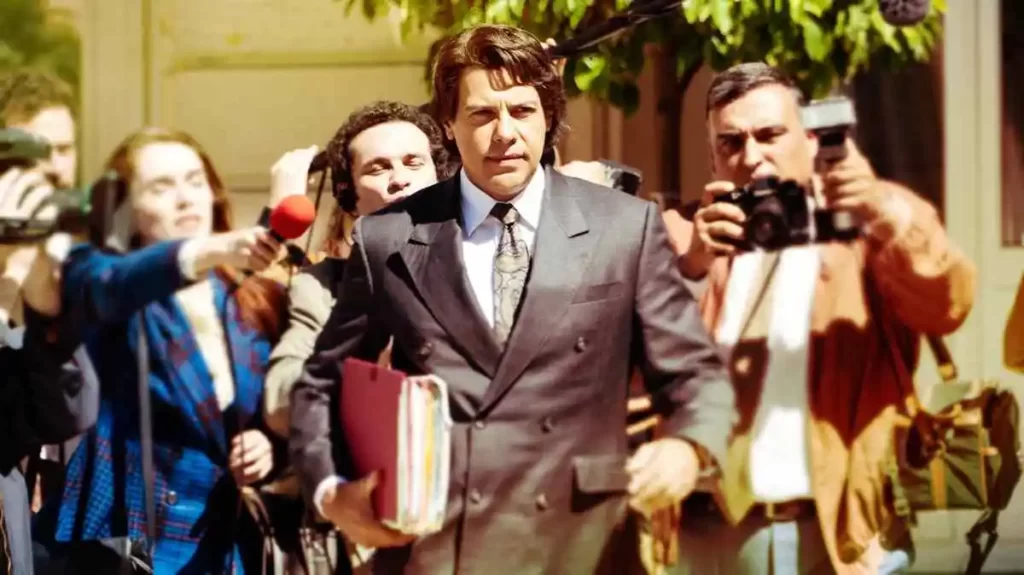
As a result, Dominique decides to leave him. Bernard tries to earn Dominique’s remission, and his sweats bear fruit. She returns to be with him again and agrees to marry him when he proposes.
Bernard had earlier asked the platoon’s general director, Jean- Pierre Bernès, to fix a match against Valenciennes. Jacques Glassmann, one of the players who were bought to lose the match, files a complaint against Jean- Pierre after his platoon loses.
Olympique de Marseille wins the titleholders League, and Bernard joins the left revolutionaries to come the coming mayor of Marseille and latterly the chairman of the country. On the other hand, when his complaint isn’t taken seriously, Jacques Glassmann takes legal action against Jean- Pierre Bernès.
Also Read:Once Upon A Crime Ending Explained: Who Killed Mr Hans?
Class Act Ending Explained
Netflix just released its rearmost limited series Class Act, Bernard Tapie, the late businessman, musician, actor, and television personality grounded on the life of one of France’s controversial public characters. The onscreen fictional interpretation of Tapie’s factual life incidents was nevertheless suitable to portray the multitudinous difficulties in which the man’s identity got caught up.
Also Read:Behind Your Touch Ending Explained: Who Is the Killer?
Class Act: How did Bernard Tapie Become Mayor?

Following the trade of Adidas, Tapie can settle the matter out of court. Still, it compels him to rebuild again, fastening on Olympique de Marseille winning the titleholders League, icing him the post of mayor of Marseille.
Eager to gain this post, Bernard requests that the platoon’s general director, Jean- Pierre Bernès, arrange a match. Olympique de Marseille wins the titleholders League, but one of the displeased bought players, Jacques Glassmann, files a complaint against Bernes and latterly sues him.
Olympique de Marseille has assured him that if his legal action is unprofitable, they will work to discredit Glassmann, but he still goes forward. Prosecutor Éric de Montgolfier discovers 250,000 francs in the yard of a relative of another paid player, Christophe Robert, validating Glassman’s allegations.
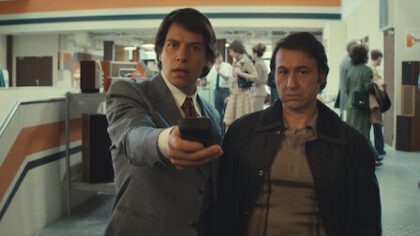
He keeps this smoking dynamo to himself, allowing Tapie to criminate himself by fabricating stories to show Bernes ’ innocence and, thus, clear himself.
Again, Montgolfier is completely apprehensive of his plans and puts him into a corner. He urges that Tapie confess in exchange for a light discipline or be forced to ruin his public image.
Does Bernard Confess?
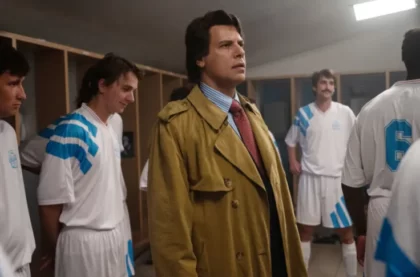
When Bernard learns that Montgolfier has called Jean- Pierre, he visits him to convert him that Glassmann is lying. Bernard is ignorant that Montgolfier has discovered the plutocrat.
Montgolfier acts as if he knows nothing, and Bernard fabricates stories to show Jean- Pierre’s innocence, ignorant that Montgolfier knows his pretensions.
Eventually, Montgolfier admits that Bernard was also intertwined in the reproach and that this visit shows it. He requests Bernard to admit to his crime to admit a lighter judgment or to be set up shamefaced latterly and locked . Bernard proclaims his innocence and doesn’t confess.
Is Bernard found to be Guilty?

Bernard’s father took him to captivity in 1997. Following a months-long trial, Bernard was condemned and transferred to 8 months in jail, the term demanded by Montgolfier.
Bernard’s father believes he failed him. likewise, on the marriage day, Bernard informed Dominique of the entire verity about the contestation, and she remained by his side. Bernard now wishes to retire from politics, business, and TV.
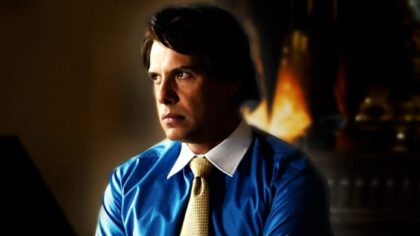
He wants to take whatever plutocrat he has left and leave with his woman, children, and parents. He thinks that one’s life defines one’s name. He considers himself fortunate to have come the joe known as Bernard Tapie.
How Did Bernard Tapie Rise To Fame?
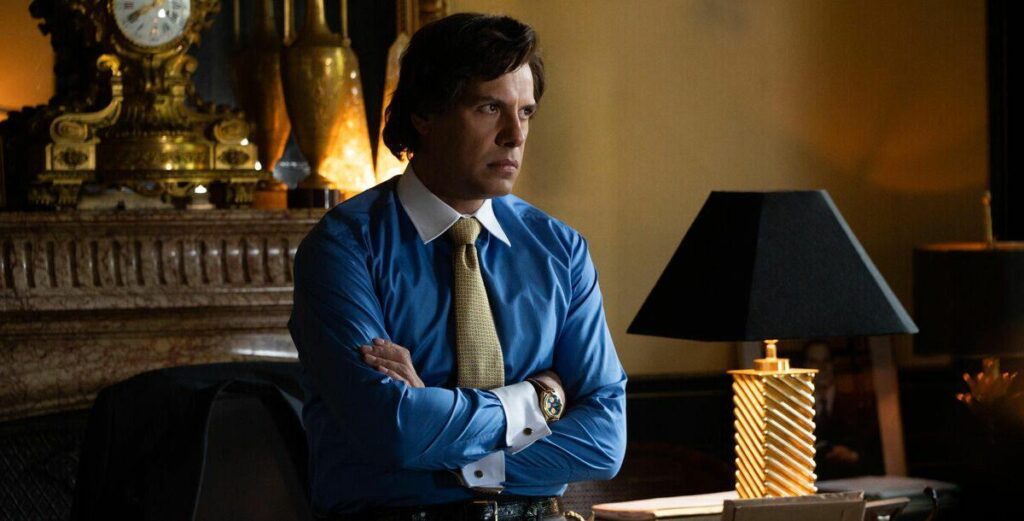
Despite his occasional intent to get effects done the easy way, Bernard Tapie was always allowing of ways to start businesses and succeed in life. As he himself claimed, his dream now was to reach the veritably top, and maybe the man’s intentions didn’t know limits. The morning of his career is presented in a rather intriguing and motivational way in Class Act, since the man would always be in hunt of business ideas and plans. One similar situation came when his father suffered a heart issue, and Bernard first met with a croaker
named Serge Nahon.
It was from this croaker that Bernard learned that the number of ambulances operating in Paris was veritably low compared to the numerous exigency cases that demanded medical help every day. Seeing this as an occasion to both help people get faster treatment to avoid further complications and also to make a successful business, Bernard jumped into the matter.
Forming a group called Heart backing with his gal Dominique andDr. Nahon, Bernard presented it to the council of croakers for further blessing and platoon members. He also made demonstration vids of the company’s work with his musketeers, who stepped in as actors. But lying andover-exaggerating his figures was always a part of Bernard’s character, and now, too, he claimed to have exponentially further subscribers than he actually did.
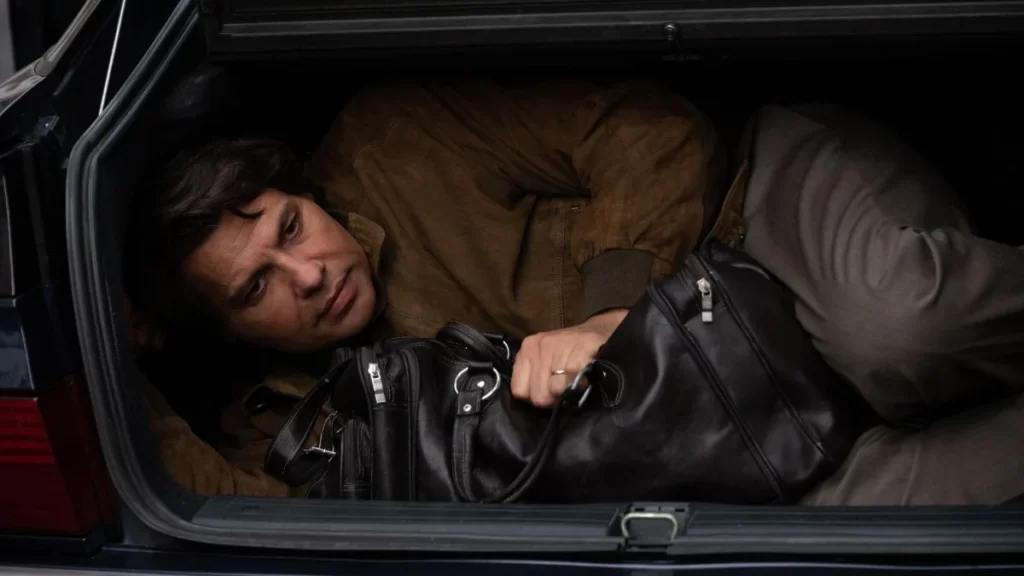
The Heart backing platoon was called upon for help by numerous scarifying Parisians, but there were simply not enough croakers or specialists yet to operate, and so ultimately,Dr. Serge Nahon himself quit. No longer willing to play with the lives of cases in this manner, Nahon left the group, and the Heart backing business failed.
Bernard worked a many months in the plumbing business along with his father, but this only increased frustration and bitterness in his life. Deciding to give himself another chance, he now approached a counsel named Fabien Bogaert, who had before represented Marcel Loiseau, in hunt of businesses to acquire. The time was formerly better for accessions than creating businesses from scrape, and so Bernard came up with his first counterculturist idea. He wanted to acquire a famed but floundering publishing company named Diguet- Deny with only one franc from the courts, but for that, he demanded the court’s trust.
For this, he’d to acquire a lower company, and he did this by taking a loan from the bank, buying the company for a dropped price, using its means to pay off the debt, and, in the process, earning an instant profit for the bank as well. This move also got Bernard closer to the banks, and soon, he acquired Diguet- Deny and brought it back to its earlier days.

But neither Bernard nor the inversely ambitious Dominique wanted to stop at this. After hearing that the aristocratic hubby of Dominique’s friend was about to buy off the veritably established tire company Wonder, they decided to try and get the company for themselves. From the Heart backing days, Dominique had been close to Bernard’s business dealings, and now she was all the closer since Diguet- Deny was registered under her name, as Bernard was banned from retaining businesses after the incident with Marcel Loiseau.
Buying Wonder was an indeed more delicate process since the strong workers ’ union supported the aristocratic businessman Alexis Cleret de Grandval, over Bernard, as the ultimate was bringing no plutocrat into the business. Like his former accessions, Bernard Tapie intended to buy the recognized but financially floundering company with only one franc.
By this time, Bernard’s dealings with the workers at Diguet- Deny had come relatively well- known and appreciated by labor unions, so there was still some support for him. He knew that turning the union against de Grandval would be enough for him to get the business, and so the man came up with a tricky but ludicrous idea. By making his close friend and his clerk pretend to be the Emir of Dubai and the sheikh’s French conciliator, independently, Bernard managed to trick de Grandval.
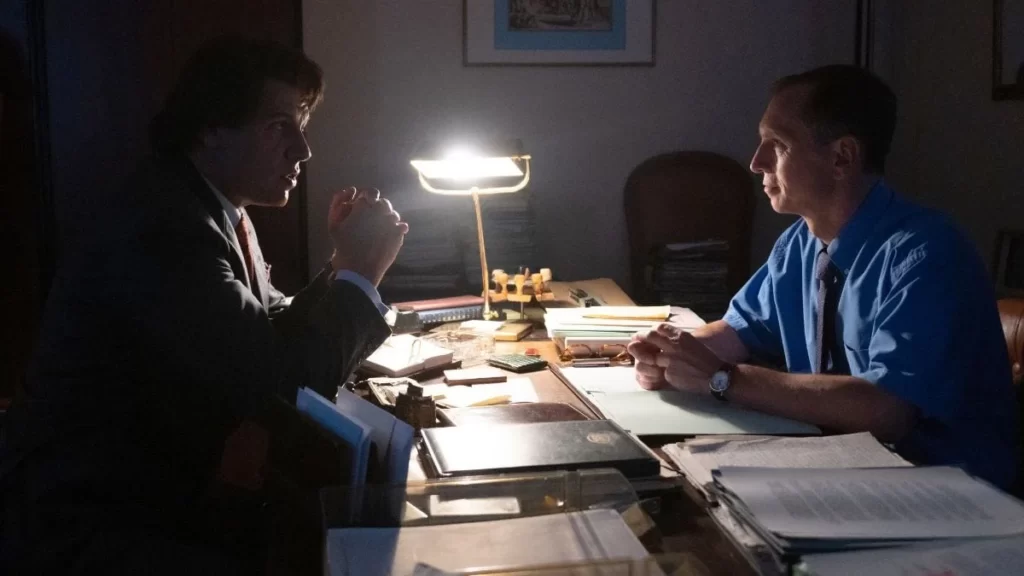
The gentleperson agreed a verbal deal with the fake sheikh that he’d vend Wonder to the Arabs and the Chinese right after he acquired the company and also agreed to move the company to China. This entire discussion was taped by Bernard, and he also presented it to the labor union, claiming that de Grandval didn’t really watch about the workers. Since moving the company to China would affect in all the French workers losing their jobs, the union incontinently supported Bernard Tapie’s deal, and he acquired Wonder for a stingy quantum of one franc.
As someone always interested in making public appearances, Bernard Tapie appeared on numerous TV programs and shows during this time, and both these cases, as well as his business chops, brought him to the attention of the quondam French President as well. For some time, Bernard joined the Socialist Party, but ultimately had to step down. It was around this time that his most accomplished successes came after he acquired Adidas and also the major Olympique Marseille football club.
While the Adidas deal also didn’t last veritably long, Bernard pushed OM towards major success. Class Act also covers the pivotal time in 1993, when Marseille came the first French club to have European glory after they won the outstanding titleholders League competition. But from this very moment on, Bernard Tapie’s image and character started to take massive, unknown successes.
What Ultimately Led To Tapie’s Downfall?

difficulties and negativities started to come Bernard’s way within a many times after his first success. Despite promising to make a number of weal changes for the workers at Wonder, Bernard did nearly nothing for them over the coming number of times.
This led to extreme displeasure among the workers, who started to strike for their rights while the proprietor was preparing to make a grand appearance on a television program. Although he did agree to make amends for the situation for the workers after this incident, Bernard’s words had to be taken with dubitation by now.
When he acquired Wonder and had to make up for the living losses at the company, Bernard Tapie eventually vended Diguet- Deny to the Asians via a French businessman named Charles Coupant. This meant that the publishing business was moved out of France, and all the workers Bernard pretended to be so defensive of had lost their livelihood.

Bernard Tapie entered the world of politics and wanted to bring massive changes to the lives of youths who were frequently turning bad because of a lack of a good, proper family life. Dominique didn’t really authorize of this, and she spent her time and trouble studying the losses of her hubby’s businesses and trying to even them out. But around the same time, Charles Coupant returned to Bernard’s life with serious allegations against him that he’d hidden the numbers of the exact trade quantum in the Digue- Deny trade.
This allegation was indeed true, and despite Bernard wanting to stubbornly fight Coupant, he was advised not to. Both parties accepted a financial agreement, and formerly again, it was Dominique’s intelligence that saved millions for Bernard. But the reproach was too important for his political career to deal with, and soon, the Socialist Party forced Bernard into relinquishing. The matter also led to Bernard having to vend off Adidas as well.
still, one of these three players, Jacques Glassman, couldn’t bear the guilt of it and soon complained to the adjudicator about this incident after the match. The matter also reached the office of the public prosecutor, Eric de Montgolfier, who was determined to discipline the perpetrators.
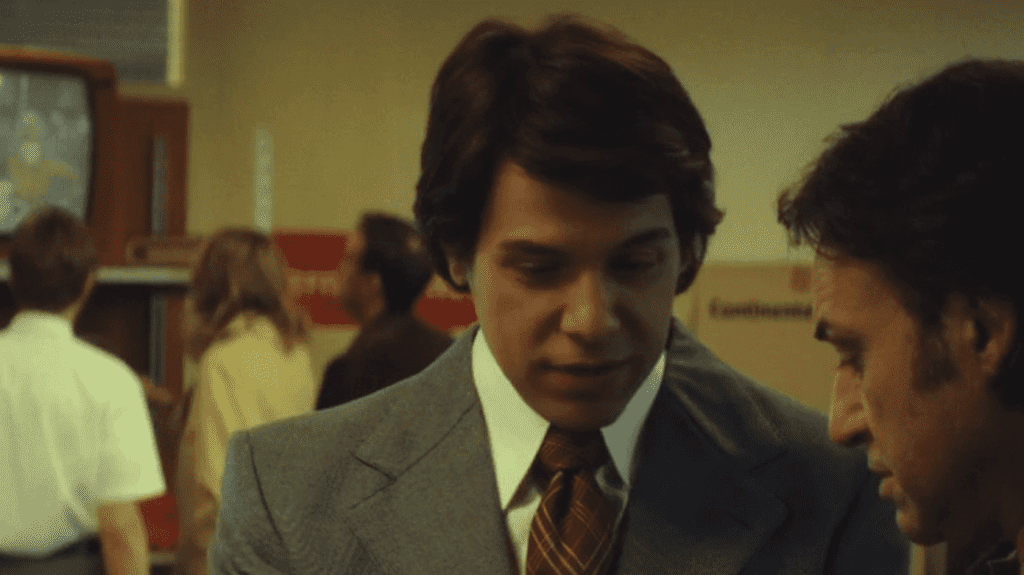
A thorough disquisition was carried out, and a store of plutocrat was set up hidden in the theater of one of the bought players ’ aunt’s houses. The quantum and description presented by Glassman fully matched, and this came an important piece of substantiation. After Bernes was called to the prosecutor’s office, Bernard himself went to meet with Montgolfier and tried to buy him onto his side.
still, this farther meddled up the situation, and eventually, Bernard Tapie was set up shamefaced of match- fixing, leading to his immediate abdication as the proprietor and director of Olympique Marseille.
What Followed In Tapie’s Life After The Match-Fixing Scandal?

Class Act spends a hefty quantum of its total duration establishing the family life of Bernard Tapie, and in the end, it was this family that the man came back to. numerous times after their relationship began, Bernard asked to marry Dominique in 1993, after Marseille’s European glory. He wanted to return to politics formerly again, asking to be the mayor of Marseille and also ultimately the President of France, but Dominique, formerly again, didn’t agree.
still, the man’s plans were fully shattered when the match- fixing case against him came public, and he was eventually set up shamefaced of the crime. Bernard Tapie had to spend eight long months in captivity because of the public execution case, and during this time, he realized his miscalculations and decided to change his life.

During Class Act ‘s ending, Dominique visits Bernard in captivity, and the man apologizes for his conduct. The woman forgives him since she does authentically understand the ambitious solicitations that drove her hubby into committing the crime. He also expresses his want to step down from politics, sports, and business and retire to a life girdled by family. therefore ends the tale of a man who formerly wanted to reach the sky but eventually had to settle for a domestic, uncomely life in the end.
Does Montgolfier find proof against Bernard?

Prosecutor Éric de Montgolfier meets Jacques regarding the match- fixing case and warns him that Olympique de Marseille will try to discredit him and he’ll be the bone who’ll end up paying the price, but Glassmann doesn’t back out. Jean- Pierre Bernès is also summoned by the prosecutor, who investigates and finds 250,000 francs in Christophe Robert’s aunt’s theater .
As Glassmann had told Montgolfier that Christophe Robert was one of the players who were bought by Jean- Pierre, the plutocrat that was set up buried in Robert’s aunt’s theater proves that Glassmann has been telling the verity.
Is Bernard set up shamefaced?
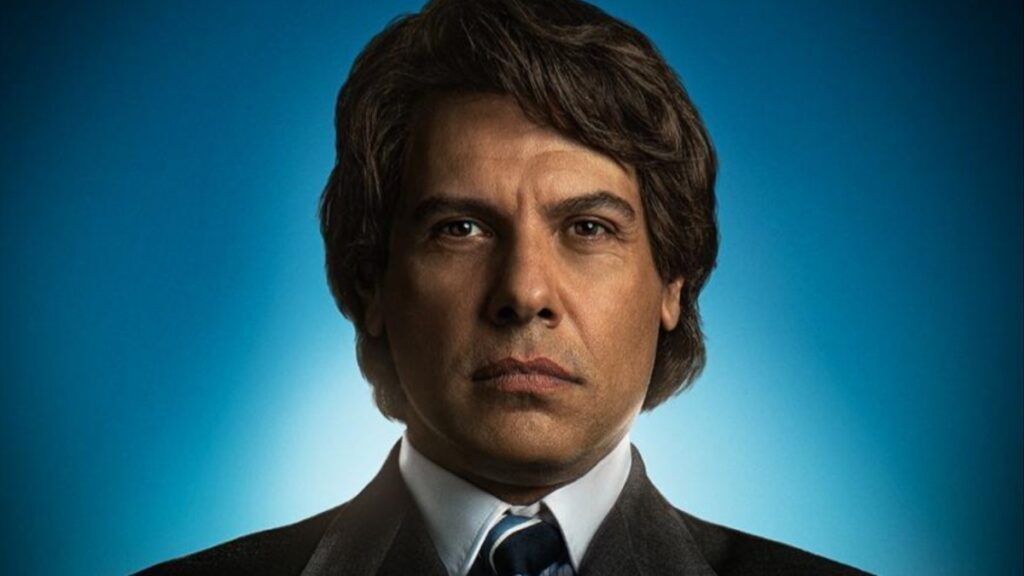
In 1997, Bernard’s father drives him to captivity. It turns out that after a months-long trial, Bernard was set up shamefaced and doomed to 8 months in captivity, a judgment that Montgolfier had requested.
Bernard’s father thinks that he failed him. likewise, Bernard had told Dominique the whole verity about the reproach on the day of the marriage, and she continued to stand by his side. Bernard now wants to give up politics, business, and television.
He wants to cash out whatever is left and go down with his woman, children, and his parents. He believes that it’s one’s life that defines one’s name. He came the man everyone knows as Bernard Tapie, and he counts that as an achievement.
